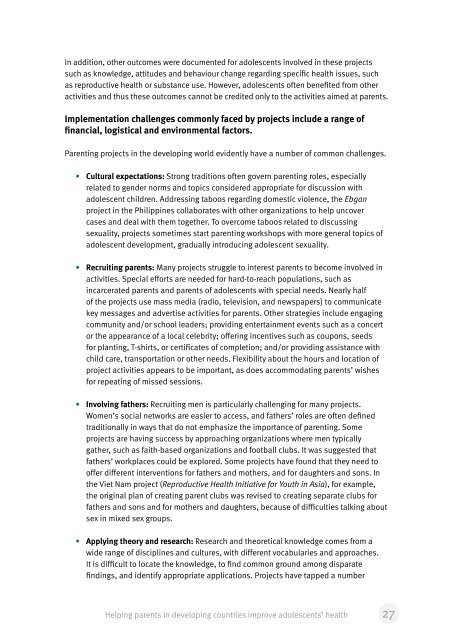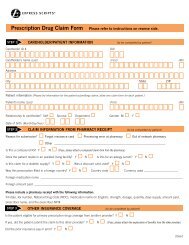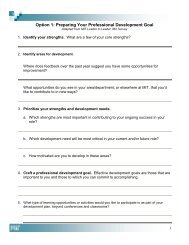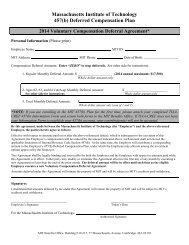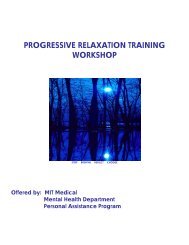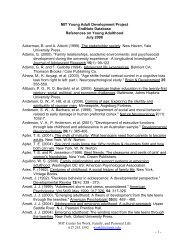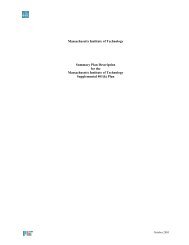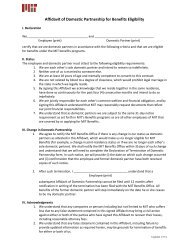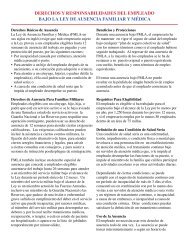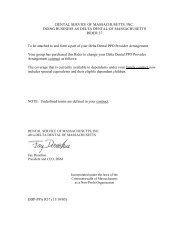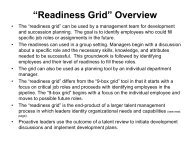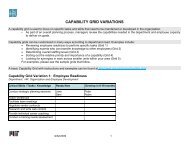Helping parents in developing countries improve adolescents' health
Helping parents in developing countries improve adolescents' health
Helping parents in developing countries improve adolescents' health
Create successful ePaper yourself
Turn your PDF publications into a flip-book with our unique Google optimized e-Paper software.
In addition, other outcomes were documented for adolescents <strong>in</strong>volved <strong>in</strong> these projects<br />
such as knowledge, attitudes and behaviour change regard<strong>in</strong>g specific <strong>health</strong> issues, such<br />
as reproductive <strong>health</strong> or substance use. However, adolescents often benefited from other<br />
activities and thus these outcomes cannot be credited only to the activities aimed at <strong>parents</strong>.<br />
Implementation challenges commonly faced by projects <strong>in</strong>clude a range of<br />
f<strong>in</strong>ancial, logistical and environmental factors.<br />
Parent<strong>in</strong>g projects <strong>in</strong> the develop<strong>in</strong>g world evidently have a number of common challenges.<br />
• Cultural expectations: Strong traditions often govern parent<strong>in</strong>g roles, especially<br />
related to gender norms and topics considered appropriate for discussion with<br />
adolescent children. Address<strong>in</strong>g taboos regard<strong>in</strong>g domestic violence, the Ebgan<br />
project <strong>in</strong> the Philipp<strong>in</strong>es collaborates with other organizations to help uncover<br />
cases and deal with them together. To overcome taboos related to discuss<strong>in</strong>g<br />
sexuality, projects sometimes start parent<strong>in</strong>g workshops with more general topics of<br />
adolescent development, gradually <strong>in</strong>troduc<strong>in</strong>g adolescent sexuality.<br />
• Recruit<strong>in</strong>g <strong>parents</strong>: Many projects struggle to <strong>in</strong>terest <strong>parents</strong> to become <strong>in</strong>volved <strong>in</strong><br />
activities. Special efforts are needed for hard-to-reach populations, such as<br />
<strong>in</strong>carcerated <strong>parents</strong> and <strong>parents</strong> of adolescents with special needs. Nearly half<br />
of the projects use mass media (radio, television, and newspapers) to communicate<br />
key messages and advertise activities for <strong>parents</strong>. Other strategies <strong>in</strong>clude engag<strong>in</strong>g<br />
community and/or school leaders; provid<strong>in</strong>g enterta<strong>in</strong>ment events such as a concert<br />
or the appearance of a local celebrity; offer<strong>in</strong>g <strong>in</strong>centives such as coupons, seeds<br />
for plant<strong>in</strong>g, T-shirts, or certificates of completion; and/or provid<strong>in</strong>g assistance with<br />
child care, transportation or other needs. Flexibility about the hours and location of<br />
project activities appears to be important, as does accommodat<strong>in</strong>g <strong>parents</strong>’ wishes<br />
for repeat<strong>in</strong>g of missed sessions.<br />
• Involv<strong>in</strong>g fathers: Recruit<strong>in</strong>g men is particularly challeng<strong>in</strong>g for many projects.<br />
Women’s social networks are easier to access, and fathers’ roles are often def<strong>in</strong>ed<br />
traditionally <strong>in</strong> ways that do not emphasize the importance of parent<strong>in</strong>g. Some<br />
projects are hav<strong>in</strong>g success by approach<strong>in</strong>g organizations where men typically<br />
gather, such as faith-based organizations and football clubs. It was suggested that<br />
fathers’ workplaces could be explored. Some projects have found that they need to<br />
offer different <strong>in</strong>terventions for fathers and mothers, and for daughters and sons. In<br />
the Viet Nam project (Reproductive Health Initiative for Youth <strong>in</strong> Asia), for example,<br />
the orig<strong>in</strong>al plan of creat<strong>in</strong>g parent clubs was revised to creat<strong>in</strong>g separate clubs for<br />
fathers and sons and for mothers and daughters, because of difficulties talk<strong>in</strong>g about<br />
sex <strong>in</strong> mixed sex groups.<br />
• Apply<strong>in</strong>g theory and research: Research and theoretical knowledge comes from a<br />
wide range of discipl<strong>in</strong>es and cultures, with different vocabularies and approaches.<br />
It is difficult to locate the knowledge, to f<strong>in</strong>d common ground among disparate<br />
f<strong>in</strong>d<strong>in</strong>gs, and identify appropriate applications. Projects have tapped a number<br />
<strong>Help<strong>in</strong>g</strong> <strong>parents</strong> <strong>in</strong> develop<strong>in</strong>g <strong>countries</strong> <strong>improve</strong> adolescents’ <strong>health</strong><br />
27


